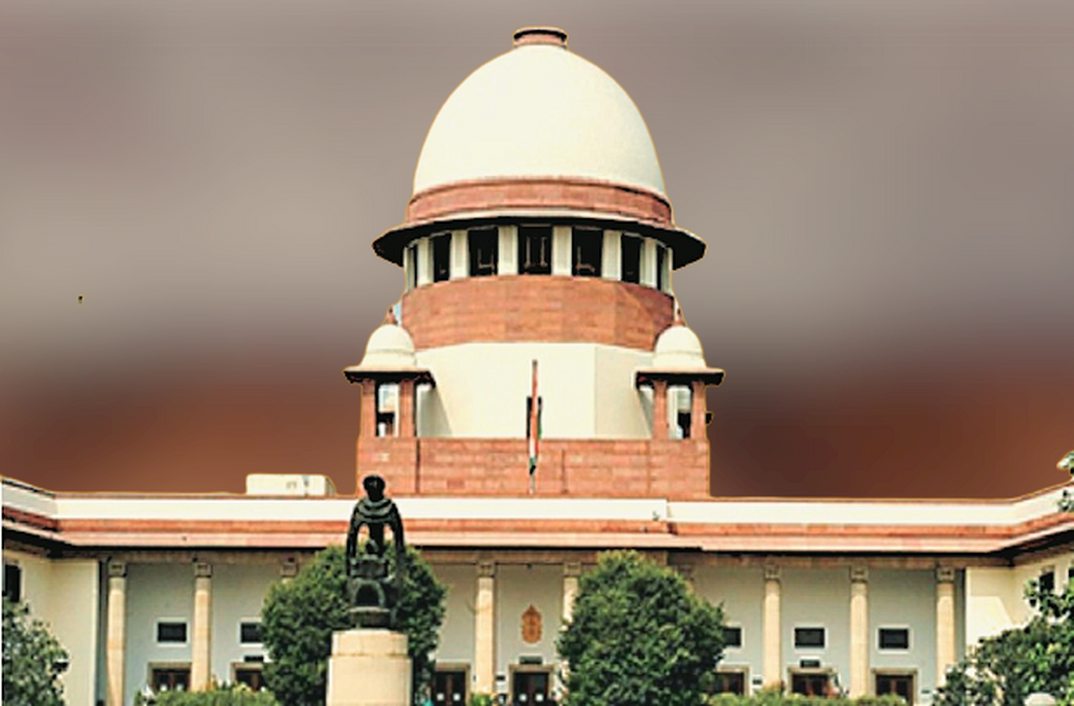Magistrate ought to have treated Protest Petition as a complaint when reliance was also placed upon affidavits of witnesses, clarifies Top Court
Justices Vikram Nath & Satish Chandra Sharma [18-04-2024]

Read Order: MUKHTAR ZAIDI v. THE STATE OF UTTAR PRADESH & ANR [SC- CRIMINAL APPEAL NO. 2134 OF 2024]
Tulip Kanth
New Delhi, April 22, 2024: In a case where the Magistrate rejected the police report under Section 173(2) Cr.P.C. and further directed that the matter would continue as a State case, the Supreme Court has opined that the right of the Complainant to file a petition under Section 200 Cr.P.C. is not taken away even if the Magistrate concerned does not direct that a Protest Petition be treated as a complaint.
The facts of the case suggested that Respondent no.2 lodged a First Information Report (FIR) under Sections 147, 342, 323, 307, 506 of the Indian Penal Code, 1860 and after investigation, the police report under Section 173(2) Cr.P.C. was submitted according to which the Investigating Officer found that no evidence could be collected which could substantiate the allegations made in the FIR. The said report was submitted to the Court concerned whereupon notices were issued to the informant.
The informant filed a Protest Petition along with affidavits to show that the investigation carried out by the Investigating Officer was not a fair investigation. He had completed the case diary sitting at the Police Station without actually recording the statements of the witnesses. The CJM rejected the police report under Section 173(2) Cr.P.C. and further proceeded to take cognizance for offences under Sections 147, 342, 323, 307, 506 of the IPC and under Section 190 (1) (b) of the Cr.P.C. and also directed that the matter would continue as a State case.
Accordingly, it summoned the accused. This order of cognizance and summoning the present appellant was assailed before the Allahabad High Court by way of a petition under Section 482 Cr.P.C but the same was dismissed. Aggrieved thereby, the appellant approached the Top Court.
The Counsel appearing for the appellant submitted that the CJM as also the High Court fell in error in taking cognizance under Section 190(1)(b) Cr.P.C. in as much as the CJM had relied upon not only the Protest Petition which was supported by the affidavit of the complainant but also on the affidavits of witnesses which were filed along with the Protest Petition to support the contents of the complaint. The submission was that once the CJM was relying upon additional material in the form of evidence produced by the complainant along with the Protest Petition then the only option for the CJM was to treat it as a complaint under Section 200 Cr.P.C. and proceed accordingly. The said case could not have been continued as a State case and should have been treated as a private complaint.
It was the case of the Complainant – respondent no.2 & the State that the CJM did not take into consideration any additional evidence filed in the form of affidavits along with the Protest Petition and had only relied upon the material collected during the investigation as contained in the case diary and based upon the same the satisfaction recorded by the CJM to reject the police report and take cognizance was well within his domain and such cognizance would fall within Section 190(1)(b) Cr.P.C.
After examining the order passed by the CJM taking cognizance and summoning the police, the Division Bench of Justice Vikram Nath & Justice Satish Chandra Sharma found that the CJM had actually taken into consideration not only the Protest Petition but also the affidavit filed in support of the Protest Petition as well as the four affidavits of witnesses filed along with the Protest Petition. It was based on consideration of such affidavits that the CJM was of the view that the investigation was not a fair investigation and these affidavits made out a prima facie case for taking cognizance and summoning the accused.
Reliance was placed upon the judgement in Vishnu Kumar Tiwari vs. State of Uttar Pradesh, through Secretary Home, Civil Secretariat, Lucknow & Anr., wherein it was observed that if a Protest Petition fulfills the requirements of a complaint, the Magistrate may treat the Protest Petition as a complaint and deal with the same as required under Section 200 read with Section 202 of the Code.
“The net result is that the Magistrate in the present case ought to have treated the Protest Petition as a complaint and proceeded according to Chapter XV of the Cr.P.C”, the Bench said.
Noting that the Magistrate also had the liberty to reject the Protest Petition along with all other material which may have been filed in support of the same, the Bench held that in that event the Complainant would be at liberty to file a fresh complaint. The right of the Complainant to file a petition under Section 200 Cr.P.C. is not taken away even if the Magistrate concerned does not direct that such a Protest Petition be treated as a complaint.
As the Magistrate had already recorded his satisfaction that it was a case worth taking cognizance and fit for summoning the accused, the Bench was of the view that the Magistrate ought to have followed the provisions and the procedure prescribed under Chapter XV of the Cr.P.C.
Thus, allowing the appeal and setting aside the impugned orders, the Bench held, “However, we leave it open for the Magistrate to treat the Protest Petition as a complaint and proceed in accordance to law as laid down under Chapter XV of the Cr.P.C.”
Sign up for our weekly newsletter to stay up to date on our product, events featured blog, special offer and all of the exciting things that take place here at Legitquest.




Add a Comment